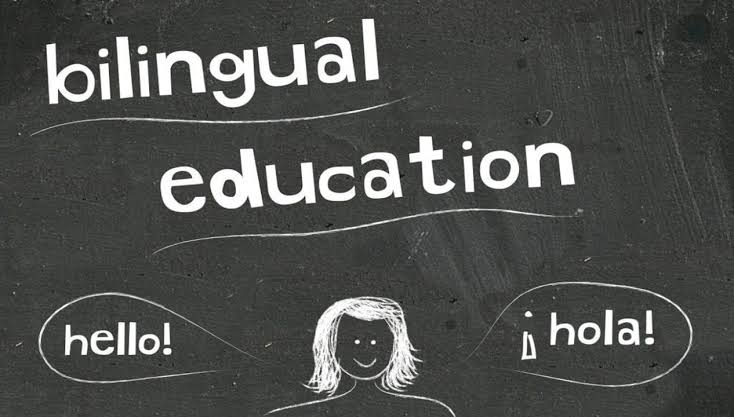Discover the benefits of bilingual education in Nigeria, including enhanced cognitive development, improved academic performance, and preservation of cultural heritage. Learn how bilingual education boosts socio-economic opportunities and supports linguistic diversity while addressing associated challenges.
Bilingual education has gained significant attention in Nigeria. Linguistic diversity is defining feature of country's cultural landscape. With over 500 languages spoken across nation bilingual education offers numerous advantages that extend beyond mere language acquisition. This article explores benefits of bilingual education in Nigeria. It highlights impact on cognitive development. It also discusses academic achievement, cultural preservation and socio-economic opportunities.
Enhancing Cognitive Development
One primary benefit of bilingual education is its impact on cognitive development. Learning multiple languages from early age can enhance various cognitive skills. This provides several advantages for students
1. Improved Cognitive Flexibility: Bilingual education helps students develop cognitive flexibility. This is ability to switch between different tasks or concepts efficiently. Bilingual individuals often demonstrate better problem-solving skills adaptability due to experience in navigating multiple linguistic and cultural frameworks
2. Enhanced Memory and Attention: Research indicates that bilingual individuals tend to have better memory and attention skills. The process of learning and using multiple languages can strengthen memory recall. It improves ability to focus on relevant information while filtering out distractions
3. Advanced Executive Functioning: Bilingual education can enhance executive functioning skills. This includes planning, organization decision-making. These skills are crucial for academic success. They are often more developed in bilingual individuals who regularly engage in language switching and complex cognitive tasks
Boosting Academic Achievement
Bilingual education can also positively influence academic performance and achievement. By integrating bilingualism into education system students can experience several academic benefits
1. Improved Academic Performance: Bilingual students often outperform monolingual peers in various academic areas. Studies have shown that bilingual individuals tend to excel in tasks requiring higher-order thinking skills. This includes critical analysis and creative problem-solving. This advantage translates into better performance in subjects like mathematics and science
2. Enhanced Literacy Skills: Bilingual education promotes development of strong literacy skills in both languages. Students who are proficient in multiple languages often have deeper understanding of language structure and grammar. This can enhance their reading and writing abilities across different subjects
3. Increased Academic Opportunities: Proficiency in multiple languages can open doors to additional academic opportunities. Bilingual students may have access to specialized programs, scholarships and academic exchanges that are often reserved for individuals with advanced language skills
Preserving Cultural Heritage
Nigeria's linguistic and cultural diversity is significant aspect of its identity. Bilingual education plays crucial role in preserving and promoting cultural heritage.
1. Strengthening Cultural Identity: Bilingual education allows students to maintain and celebrate their cultural heritage. They learn native languages alongside international ones. This practice fosters sense of pride and connection to one's cultural roots. It contributes to stronger cultural identity.
2. Preserving Indigenous Languages: Many indigenous languages in Nigeria are at risk of becoming extinct. Bilingual education can help preserve these languages. It does this by incorporating them into curriculum and encouraging their use in everyday life. This preservation effort ensures future generations can learn and appreciate ancestral languages.
3. Promoting Cultural Understanding: Learning multiple languages facilitates cross-cultural communication and understanding. Bilingual education exposes students to diverse cultures and perspectives. This fosters tolerance and respect for cultural differences. Exposure can contribute to more inclusive and harmonious society
Expanding Socio-Economic Opportunities
Bilingual education can significantly impact students' socio-economic opportunities providing them with skills that are highly valued in global job market
1. Enhanced Job Prospects: Proficiency in multiple languages is valuable asset in global job market. Bilingual individuals often have better job prospects. They can access a wider range of career opportunities. Employers value employees who can communicate with clients and partners in different languages. This makes bilingualism a desirable skill
2. Increased Economic Mobility: Bilingual education can contribute to economic mobility by providing individuals with skills needed to compete in various professional fields. Bilingual individuals may have access to higher-paying jobs. They also gain career advancement opportunities due to their language skills
3. Strengthening International Relations: Nigeria's growing role in global economy and international relations benefits from bilingual workforce. Bilingual individuals can contribute to diplomatic efforts, trade relations and cultural exchanges. This enhances Nigeria's presence on global stage
Challenges and Considerations
While bilingual education offers numerous benefits there are challenges and considerations that need to be addressed to ensure its effectiveness
1. Resource Availability: Implementing bilingual education requires adequate resources. This includes qualified teachers, educational materials and language support services. Ensuring that these resources are available and accessible is crucial for success of bilingual education programs
2. Balancing Language Instruction: Striking a balance between teaching multiple languages and maintaining high academic standards can be challenging. It is essential to design curricula that integrate language instruction with other academic subjects. This ensures that students receive a well-rounded education
3. Addressing Linguistic Inequality: Nigeria's linguistic diversity includes variations in language proficiency and access to education. Bilingual education programs must address issues of linguistic inequality. They must ensure that all students have equal opportunities to benefit from bilingual instruction
Conclusion
Bilingual education offers significant benefits for students in Nigeria including enhanced cognitive development, improved academic performance preservation of cultural heritage and expanded socio-economic opportunities. By embracing bilingual education, Nigeria can leverage its linguistic diversity. This diversity can foster a more inclusive and globally competitive society. Addressing challenges associated with bilingual education is essential. Investing in resources and support systems will be crucial. This investment will help maximize these benefits. It will ensure that all students have access to advantages of bilingual learning.
